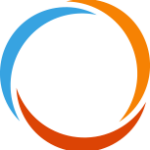About AIFK
 The conditions that promote lifelong health and well-being start early in a child’s life. But children are growing up in uncertain and stressful times. In school, kids experiencing traumatic stress are 2.5x more likely to fail a grade and score lower on standardized tests.
The conditions that promote lifelong health and well-being start early in a child’s life. But children are growing up in uncertain and stressful times. In school, kids experiencing traumatic stress are 2.5x more likely to fail a grade and score lower on standardized tests.
Communities and local leaders have the solutions, yet siloed systems limit access to comprehensive, integrated, and holistic service provision. People get stuck with inflexible and restricted service options, and children suffer.
All In For Kids is an innovation incubator that leverages what actually works for kids. Our eight grantee partners developed and designed responsive healing and caring early childhood ecosystems from deep within their community. By investing in community-driven solutions, All In For Kids is making systems-level changes to sustain the services, policies, and practices that result in holistic well-being across generations.
Our Strategies
- Focus on the needs of kids and their caregivers directly. The safety and well-being of caregivers and kids are inextricably linked. Support that addresses the needs of both holistically is proven to be more effective.
- Listen and follow the lead of the people most affected. Their experiences and expertise are critical to shaping effective strategies for healing and prevention.
- Address multiple causes of trauma. Adverse childhood experiences (ACEs) such as exposure to domestic violence, abuse, neglect or other significant life stressors like poverty and discrimination are often co-occurring and do not happen in isolation. The evidence is clear that to end childhood adversity and trauma, we must support families in more holistic ways that address multiple forms of adversity.
- Ensure families have access to food, housing, quality healthcare and conditions free from violence. When families’ basic needs are met, stress and burden are reduced. This is an essential strategy for preventing and addressing ACEs.
- Strengthen economic supports in sustainable ways. If you are a provider, neighbor, friend or loved one, advocating for policies like paid family leave and other early life supports can be transformative for the health and well-being of families harmed by trauma.
- Ensure a strong start for children. Early detection and early intervention are proven to work. In the first five years of life, children’s brains form more than 1 million new neural connections every second. It is a unique window for healing and prevention, and efforts that focus on this stage of life – as windows of opportunities to support whole families – are effective.
- Help strengthen connections. Social, spiritual and community connections are centuries-old strategies that can help to buffer against the effects of repeated traumatic stress, enable positive interactions, and other activities and communities that foster joy.
- Advocate for prevention-oriented policies. Policy and norms matter. Whether you are a neighbor or a provider, advocacy is critical to ensuring national, state, and local policies that help kids and families thrive. Advocacy can make an important difference in funding and advancing proven strategies for prevention and healing.
Learn More
Would you like learn more and receive updates? Go to the All in for Kids website.
 The conditions that promote lifelong health and well-being start early in a child’s life. But children are growing up in uncertain and stressful times. In school, kids experiencing traumatic stress are 2.5x more likely to fail a grade and score lower on standardized tests.
The conditions that promote lifelong health and well-being start early in a child’s life. But children are growing up in uncertain and stressful times. In school, kids experiencing traumatic stress are 2.5x more likely to fail a grade and score lower on standardized tests.

